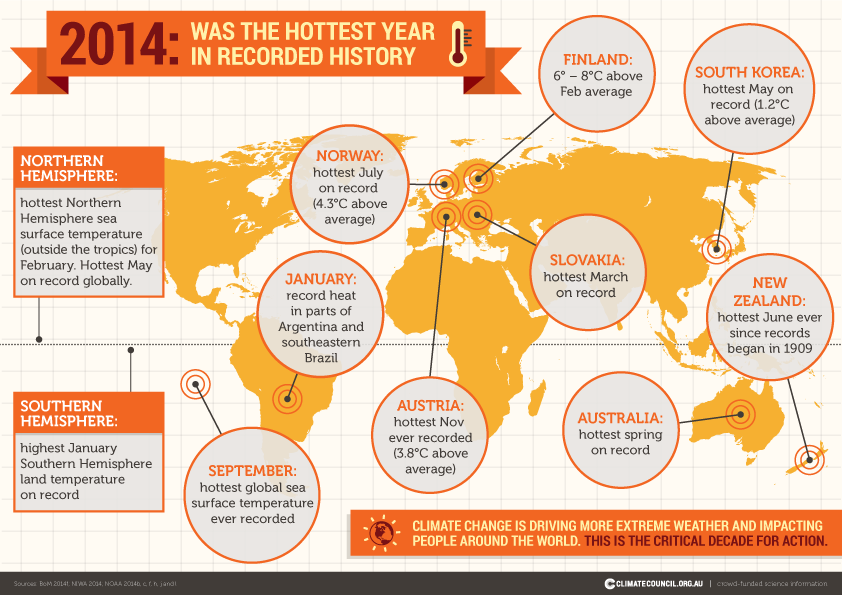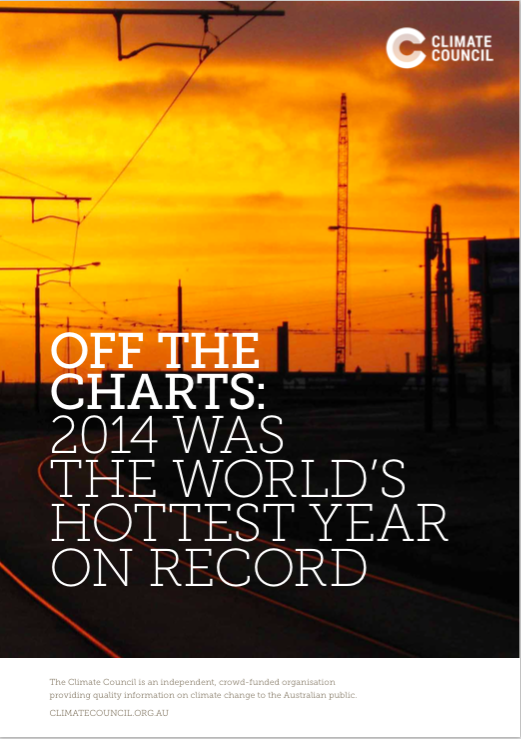This content is more than 9 years old

1. 2014 was the hottest year on record globally
- The global average temperature for 2014 was 0.69°C above the 20th century average, eclipsing the previous record set in 2010 and 2005. Climate change is a major factor in driving these record temperatures.
- The record global warmth of 2014 is part of a long-term trend: the Earth is getting hotter. All of the world’s top 10 warmest years have occurred since 1998. 2014 is the 38th consecutive year with above average global temperature.
- Across the world record breaking weather and extreme heat events increase heat stress on people, animals and plants, and well as pressure on infrastructure and agriculture.
- Climate change is a major factor in driving these record temperatures.
2. The emission of greenhouse gases is driving record global heat
- This continuing, long-term warming trend has been driven by the emissions of greenhouse gases from human activities, primarily from the burning of fossil fuels.
3. Climate change is a major factor in extreme heat in Australia.
- Hot days are happening more often while heatwaves are becoming hotter, longer and more frequent. This is worsening bushfire danger weather.
- 2014 was Australia’s 3rd hottest year.
- An increase in heatwaves and bushfires affects the health of Australians, as well as damaging infrastructure, agriculture and the environment.
4. This is the critical decade
- We are now halfway through the critical decade for action on climate change. To slow and then halt the warming trend, we must cut carbon emissions rapidly and deeply. 2015 is the pivotal year to join global efforts in the leadup to the international climate negotiations in Paris to stabilise the world’s climate and reduce the risk of more extreme weather events.
